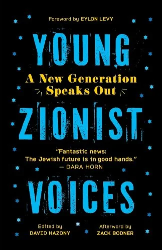This collection of essays is an early salvo of what might be called “post-post- Zionism.” Each author engages one of Israel’s two most threatening critics today: those on the outside who question the justification for a Jewish state in the modern world and the Middle East; and those on the inside who are alienated by a mainstream culture they find shallow, commercial, or narrowly tribal. In essence, the book takes up the unfinished business of both Theodore Herzl and Ahad Ha’am.
Most of the authors here engage the critiques of Israel head on, and try to offer a substantive vision of the significance of the Jewish state — for Israelis, for Jews, and even for the world. The implicit audience is the liberal, secular Israeli (or Jew), for whom Jewish history, religion, and mere people-hood is not enough. Some of the writers here, such as Anna Isakova, a Soviet émigré and one-time advisor to Prime Minister Barak, articulate Israel’s cultural flaws with passion bordering on anger. More interesting is a wry but heartfelt essay by Ze’ev Maghen, who counterattacks those who imagine a world, á la John Lennon, with “no countries…and no religion too.” Maghen acknowledges the seductiveness of that dream, but in a peroration one can almost hear, he argues for the excitement of picking up where Ahad Ha’am and Bialik were fashioning new out of old.
Maghen’s general point is the closest thing here to a vision of Israeli life renewed; there are no smaller scale explorations of Israeli cultural dynamism. In an important bit of historiography, Yoram Hazony documents that Herzl understood his own title Der Judenstaat as “The Jewish State,” not “The Jews’ State,” as has become fashionable to argue. While this book does not fully answer the post- or anti-Zionist critics the editors have selected, it at least sets the terms for debate, and shows that there are Israelis ready to make the Zionism claim in its second century.





